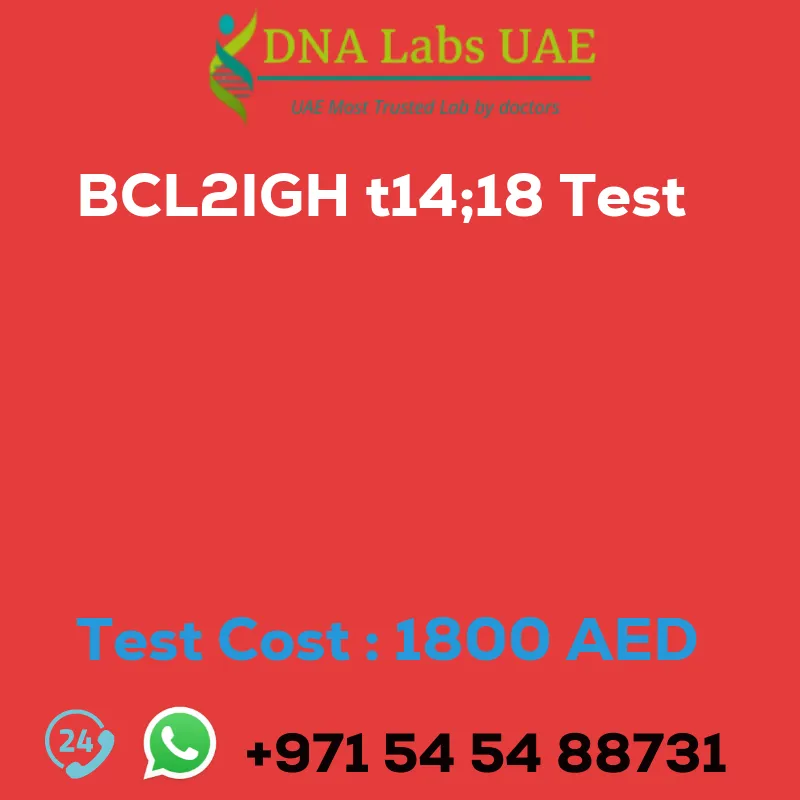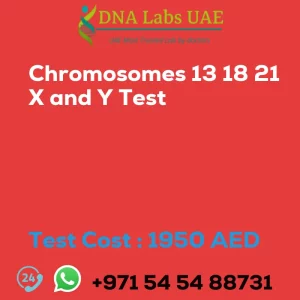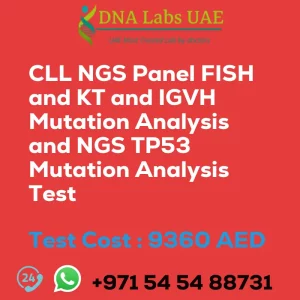BCL2IGH t14;18 Test
Test Name: BCL2IGH t14;18 Test
Components: Paraffin embedded tissue blocks
Price: 1800.0 AED
Sample Condition: Tumor tissue
Report Delivery: 7-8 days
Method: FISH
Test Type: Genetics
Doctor: Oncology
Test Department:
Pre Test Information: BCL2/IGH (t14;18) can be done with a Doctor’s prescription. Prescription is not applicable for surgery and pregnancy cases or people planning to travel abroad.
Test Details
BCL2/IGH (t14;18) refers to a chromosomal translocation involving the BCL2 gene on chromosome 18 and the immunoglobulin heavy chain gene (IGH) on chromosome 14. This translocation is commonly found in certain types of B-cell lymphomas, particularly follicular lymphoma and a subset of diffuse large B-cell lymphoma.
The translocation results in the fusion of the BCL2 and IGH genes, leading to the overexpression of the BCL2 protein. BCL2 is an anti-apoptotic protein that helps regulate cell survival by preventing programmed cell death. Overexpression of BCL2 due to the translocation disrupts this balance and promotes cell survival, contributing to the development and progression of lymphomas.
The BCL2/IGH translocation can be detected using molecular genetic techniques such as fluorescence in situ hybridization (FISH) or polymerase chain reaction (PCR). Detection of this translocation is important for diagnosis and classification of lymphomas, as well as for predicting response to treatment and prognosis.
| Test Name | BCL2IGH t14;18 Test |
|---|---|
| Components | Paraffin embedded tissue blocks |
| Price | 1800.0 AED |
| Sample Condition | Tumor tissue |
| Report Delivery | 7-8 days |
| Method | FISH |
| Test type | Genetics |
| Doctor | Oncology |
| Test Department: | |
| Pre Test Information | BCL2/IGH (t14;18) can be done with a Doctors prescription. Prescription is not applicable for surgery and pregnancy cases or people planing to travel abroad. |
| Test Details |
BCL2/IGH (t14;18) refers to a chromosomal translocation involving the BCL2 gene on chromosome 18 and the immunoglobulin heavy chain gene (IGH) on chromosome 14. This translocation is commonly found in certain types of B-cell lymphomas, particularly follicular lymphoma and a subset of diffuse large B-cell lymphoma. The translocation results in the fusion of the BCL2 and IGH genes, leading to the overexpression of the BCL2 protein. BCL2 is an anti-apoptotic protein that helps regulate cell survival by preventing programmed cell death. Overexpression of BCL2 due to the translocation disrupts this balance and promotes cell survival, contributing to the development and progression of lymphomas. The BCL2/IGH translocation can be detected using molecular genetic techniques such as fluorescence in situ hybridization (FISH) or polymerase chain reaction (PCR). Detection of this translocation is important for diagnosis and classification of lymphomas, as well as for predicting response to treatment and prognosis. |








